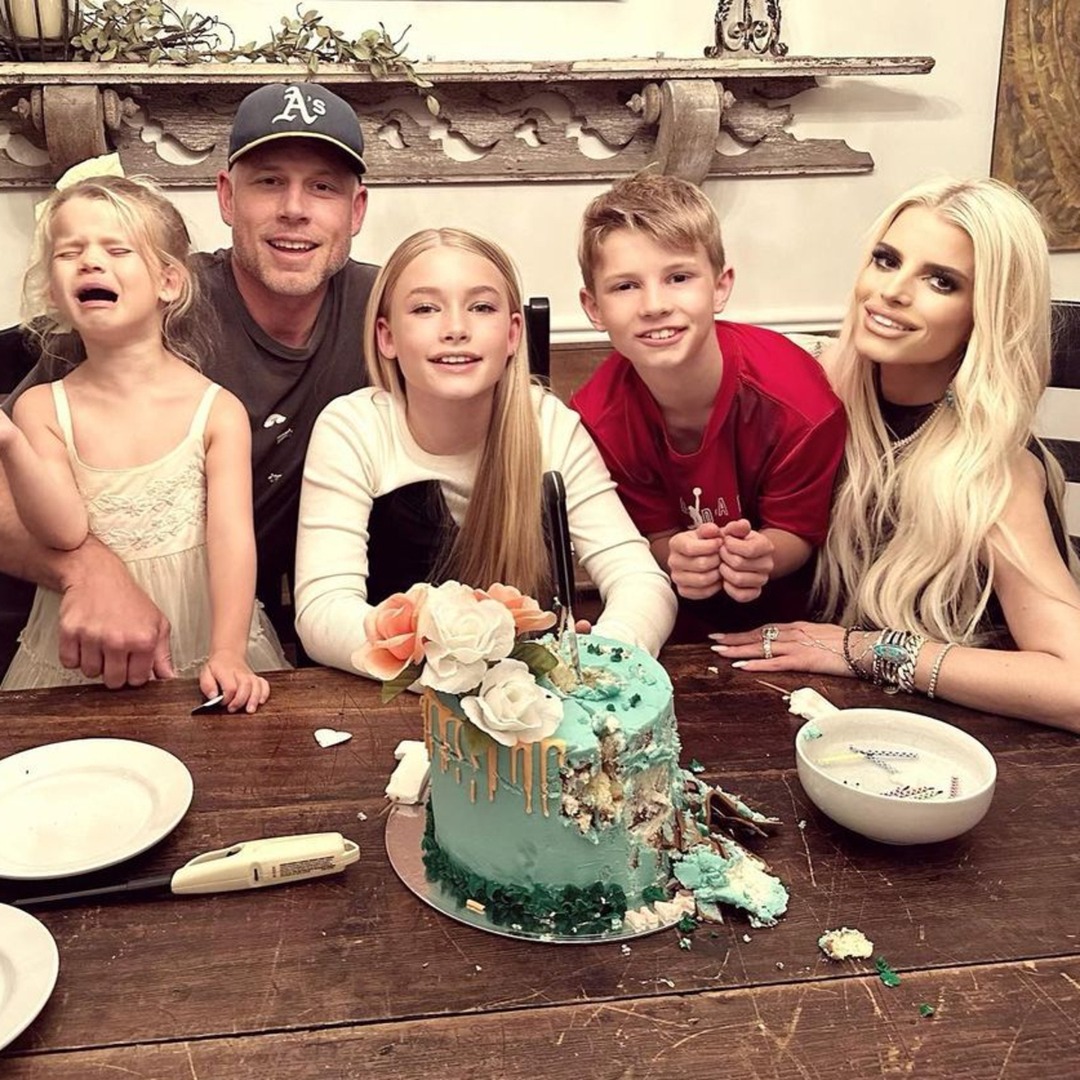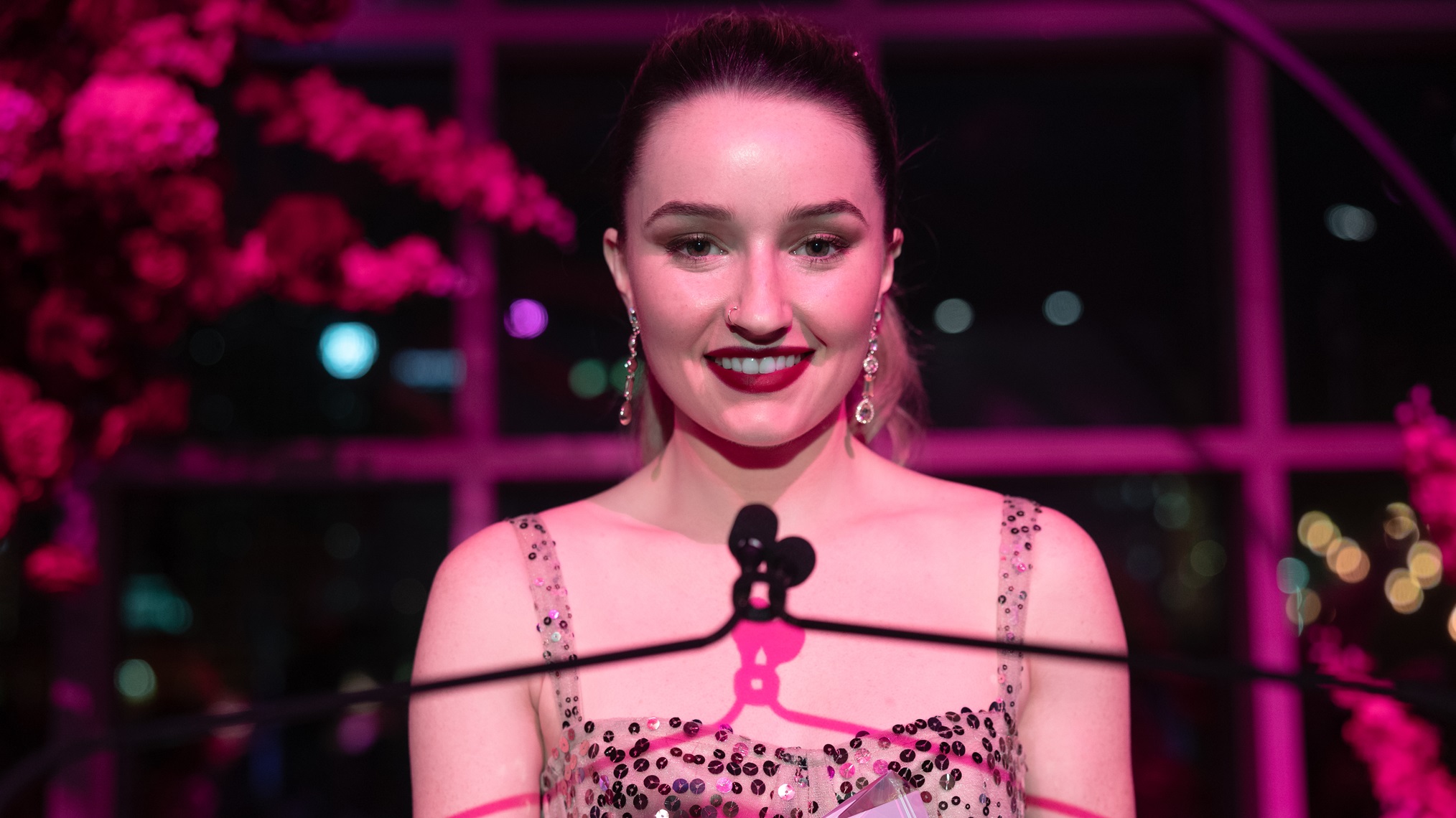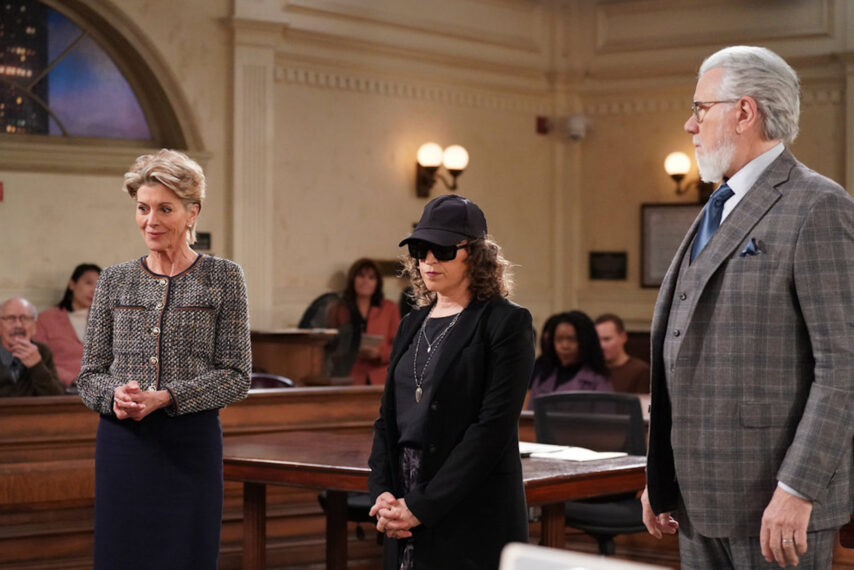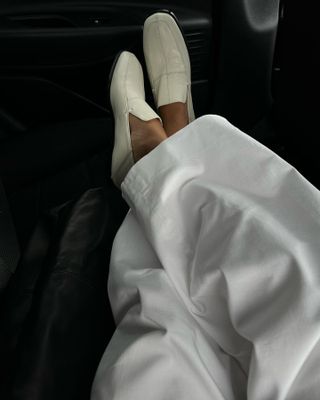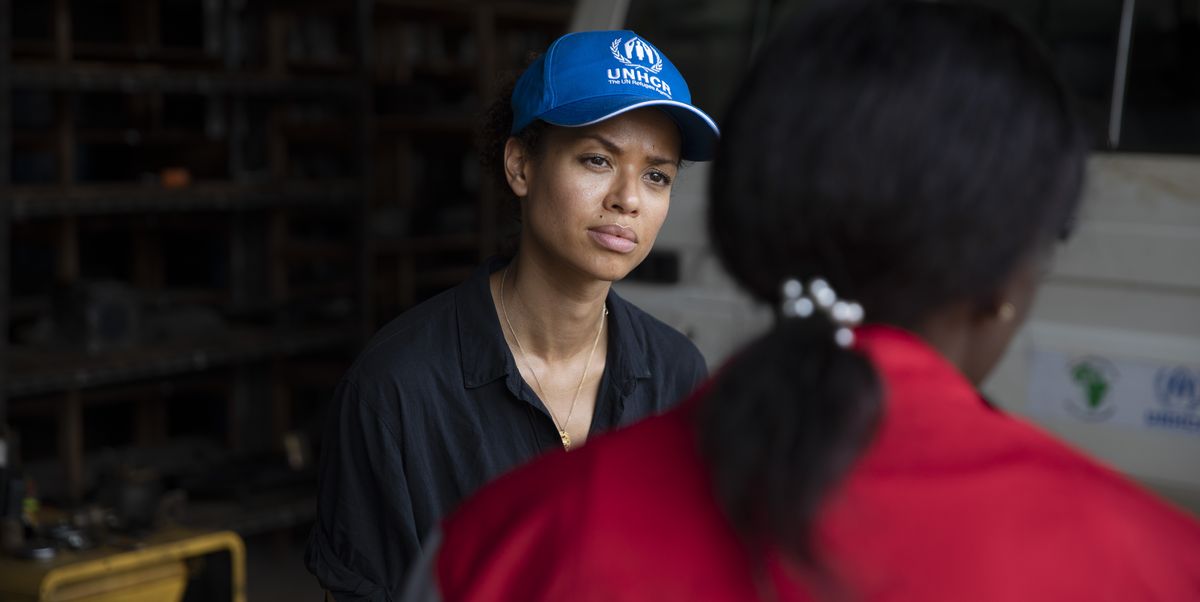
Globally, it’s estimated that one in three women will experience sexual or physical violence in their lifetime. Following a recent trip to the Democratic Republic of Congo, actor and United Nations High Commissioner for Refugees Goodwill Ambassador Gugu Mbatha-Raw writes about the devastating impacts of gender-based violence on displaced women and girls in the area. Warning: This story contains a discussion about sexual assault. Names have been changed for their protection.
I notice her right away, and we exchange shy smiles across the crowded room. Her young face is dimpled and sweet, covered with a colored head wrap. She seems familiar, and I realize she reminds me of Letitia Wright of Black Panther fame. But I’m not in the make-believe world of Wakanda. I’m in a room full of real-life female heroes and survivors in Kananga, the capital city of Kasai in the Democratic Republic of Congo.
We are gathered to celebrate a university education scholarship for girls who are survivors of sexual and gender-based violence. The program, backed by UNHCR, is being officially named after Zaida Catalán, a Swedish-Chilean UN worker known for her passionate stance on female empowerment, who was brutally murdered in this region in 2017.
The girl I lock eyes with looks about 16 years old. The room is filled with tens of other typical teenage girls—bright, focused, awkward. Hair braided, girlish anticipation in the air. It’s hard to believe that every one of them has been violated, each carrying their own untold trauma.
Five years after #MeToo and away from the headlines, deep in the DRC, there are women fighting daily to receive an education, support themselves, and change the attitudes of those around them—with the hope that future victims of sexual violence won’t be ostracized from their families or shunned from their communities. The girl sittingin the front row is one just of them.

Amelie with her daughter.
© UNHCR/Caroline Irby
The next day, I visit an organization founded by Nathalie Kambala, a dynamic female lawyer from the region, who is working to provide support for girls affected by gender-based violence. I sit down to speak with one of the girls in the program, and I instantly recognize her from the night before. Now, without the head wrap and with a baby in her arms, I learn her name is Amelie.
She tells me that she’s studying to be a nutritionist, as there are currently no nutritionists in the whole Kasai region. We are interrupted as someone tries to close the door for privacy, and immediately, her baby daughter becomes distressed. I look at this beautiful girl, barely 18 months old, and wonder why a door being closed is so upsetting.
I ask Amelie how she came to know about the scholarship program, and as she speaks, it’s as if a dam inside her breaks; her words flow so readily. She takes me back to a night three years ago, when armed bandits came to her family’shome. At 16, Amelie was blindfolded and put into a vehicle with her hands tied. Unaware of where she was being taken, when the blindfold was removed, she found herself in a room with five men and many other girls. She was a hostage there for two and a half months, raped daily by the same five men. They would lock the door for the day and then open it at night, and the nightmare would start all over again.
Amelie discovered that many of the girls had been there for a year, and they were reluctant to resist, already so broken down by the experience. She encouraged them to scream during the day to attract attention, but many refused, too fearful of the consequences. Unperturbed, Amelie tells me of the fateful day her cries were heard by some passing children. They alerted the Congolese armed forces, who finally discovered the girls after breaking down the door.
It was only then that she learned they were more than 300 kilometers away from her home. Their captors were nowhere to be found, and Amelie started the long, solo journey home; a walk that took her three and a half weeks.
I take a breath, fearful to ask, after such an ordeal, how she was received by her family when she returned. As I carefully pose this question, her story abruptly stops with a sharp intake of breath. Amelie arrived home to discover her family no longer existed; they had been killed on the same day she was kidnapped.
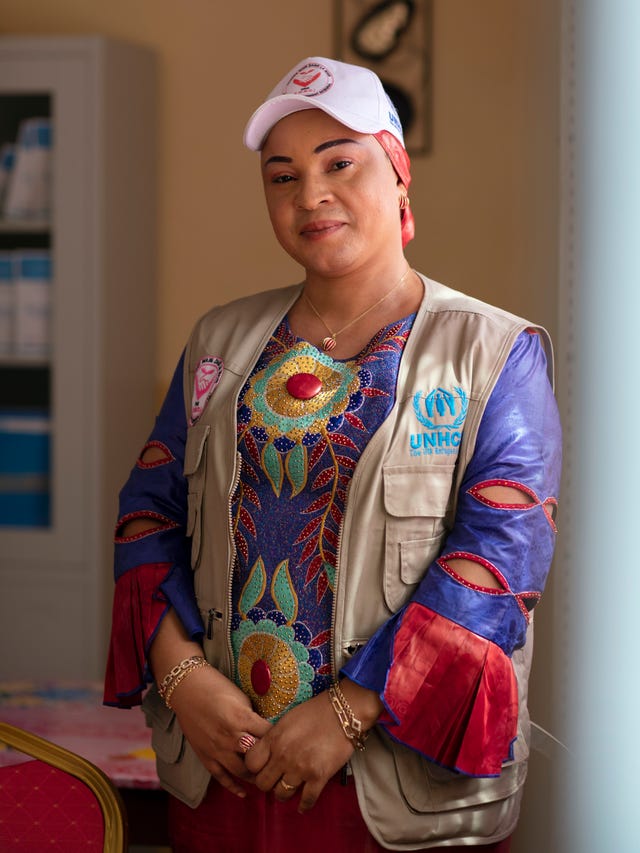
Nathalie Kambala.
© UNHCR/Caroline Irby
Because she had been raped, her uncles rejected her, but her grandmother, a subsistence farmer, took her in. Shortly after, Amelie became sick, and it was then that they became acquainted with Nathalie Kambala and her organization. Nathalie sent Amelie to the hospital, where she learned that she was pregnant. I think of her beautiful little girl, so fearful of a closing door. Has she inherited the trauma of her mother’s past experiences?
Armed with a scholarship, Amelie explained how her grandmother would look after her baby when she was at university. It’s at this point that our interpreter’s voice cracks with emotion, as she articulates the most recent chapter in Amelie’s journey: six months ago, Amelie’s grandmother died.
Who will look after her daughter now? How will she continue her studies? She is currentlyselling her daughter’s clothes to buy food, but the very pressing issue of shelter is a daily struggle. Where is she living now?
She never uses the word “homeless,” but it dawns on me that this young mother, who has been through unimaginable hardship, who has always dreamed of being the first in her family to go to university, has nowhere to stay tonight.
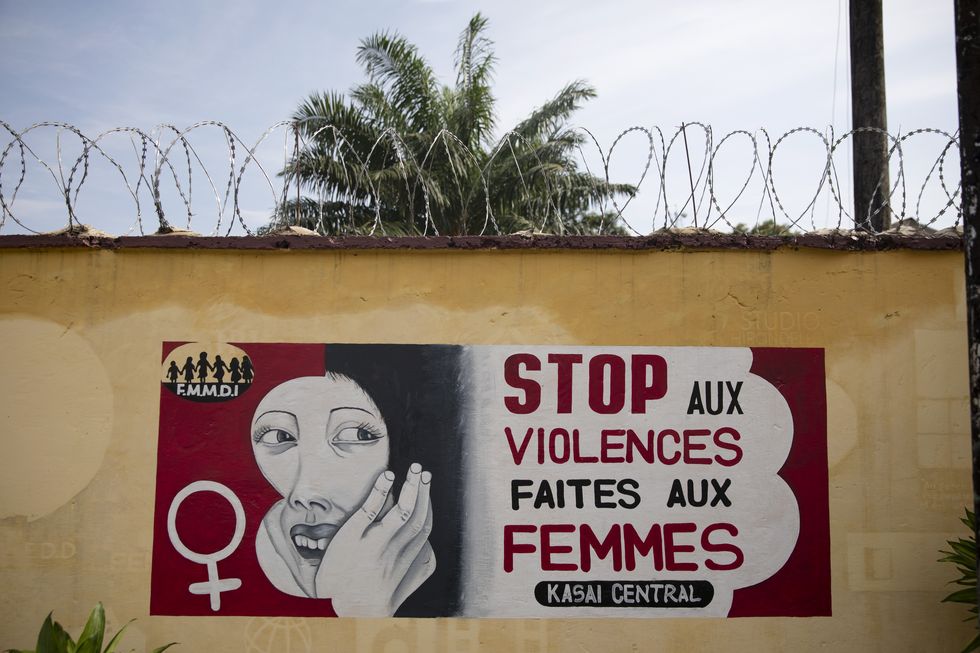
A painting denouncing gender-based violence on the wall of Kambala’s organization.
© UNHCR/Caroline Irby
I quickly realize the needs of all the girls here span beyond the academic. These girls need food, education, and, perhaps most importantly, a door you can lock from the inside. Even then, when these girls do have the basics in place, organizations can only fund a portion of their studies, meaning no matter how hard they work, many of themnever actually finish their education.
Leaders like Nathalie are essential to this fight, but she can’t do it alone. The 16 Days of Activism Against Gender-Based Violence has just come to an end, and Amelie and her daughter’s paths are uncertain. We can’t abandon them. They deserve a doorway to their future.
If you or someone you know is affected by sexual assault, contact the National Sexual Assault Hotline at 800-656-HOPE (4673) or visit rainn.org for support online.
Gugu Mbatha-Raw
Gugu Mbatha-Raw is an actor and UNHCR Goodwill Ambassador.


